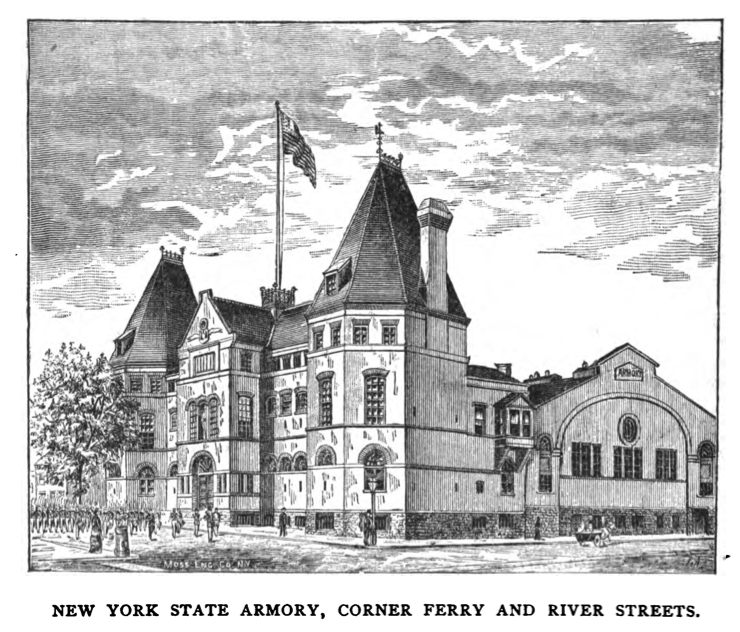
If you think of the old State Armory in Troy, you probably think of the one on the RPI campus, which is now known as the Alumni Sports & Recreation Center. It’s a big old brick pile in a fortress style, somewhat less decorative than some other armories of its day. But it had a much grander predecessor, down on the southeast corner of Ferry and River Streets. I don’t know when it was torn down, though today its location is a ’60s-vintage public housing project and a ramp to the Congress Street Bridge.
This beauty’s cornerstone was laid July 4, 1884 on the former International Hotel property. Arthur Weise reports, “The metallic box placed in the cavity of the corner-stone contained histories of the military companies present, a copy of the act appropriating the money to erect the armory, a lithograph of the building, a history of its site, copies of the city newspapers, and a volume of the History of the city of Troy, 1876, by A.J. Weise . . . . The building was completed and occupied in March, 1886.”
Weise goes on to give the history of the site, once the homestead of Jacob D. Van der Heyden and passed on to his son, Derick, in 1803, who removed the old ferry-house and built a two-story dwelling. Derick moved to the island of Santa Cruz in the West Indies “to recuperate his failing health, but he was not benefited by the change of residence, and died there, February 1, 1818. To transport the body to Troy on a vessel without detection, the corpse was suspended in a hogshead filled with rum. It reached its destination, and was transferred in one of the rooms of the dwelling to a coffin.”
That wouldn’t be the last corpse on the site. A third story was added to the dwelling and it took the name of the National Hotel. “A man and a woman, representing themselves as married, took rooms and board in the house. A week afterward they were found dead in bed with their throats cut. The unknown people explained in a note that extreme poverty had caused them to commit suicide.” Some years later, in 1866, it was renamed the International Hotel, and so it remained until was demolished in 1884 to make room for the new Armory.
